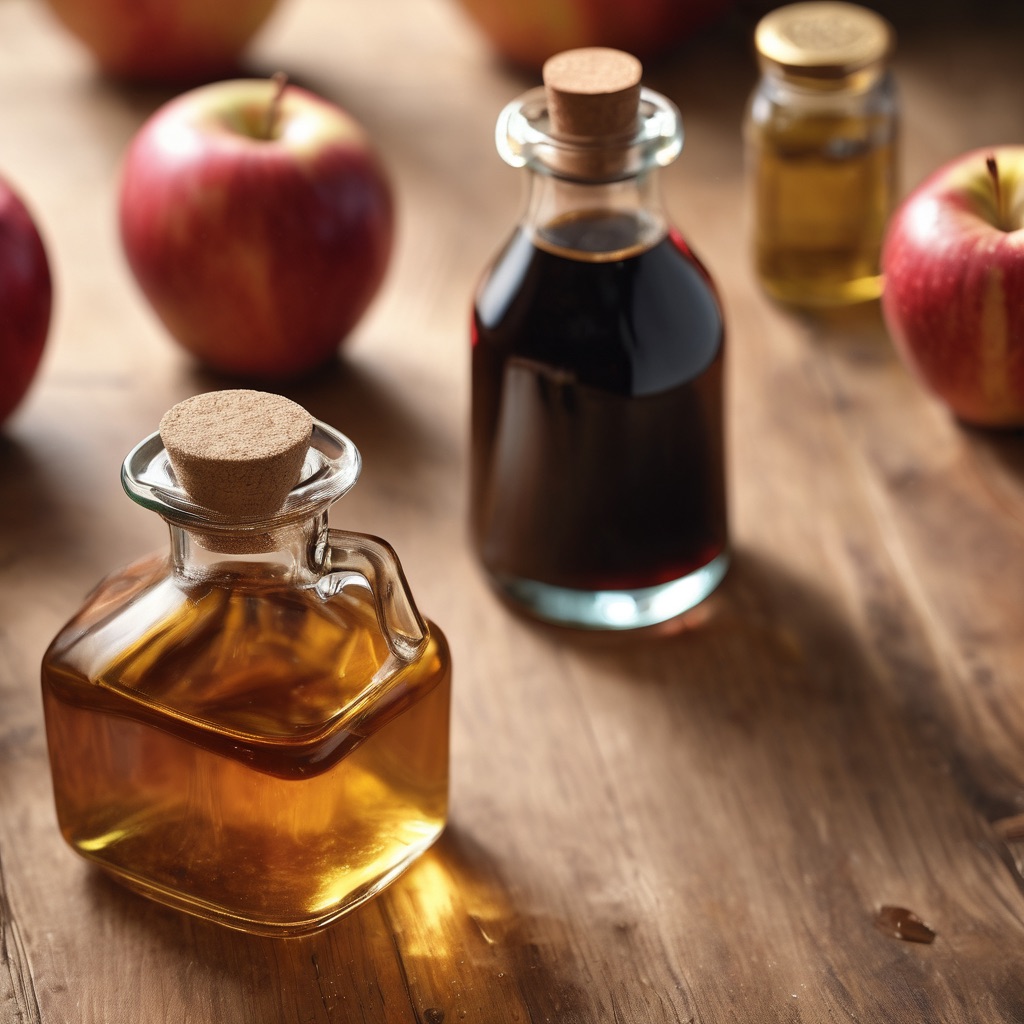What to Eat and Drink
Difference Between Apple Cider Vinegar And Balsamic vinegar
One type of vinegar that many people think of right away is apple cider vinegar and another is balsamic vinegar. These ingredients can be used in many ways and have different tastes, sources, and purposes. This detailed guide will explain the differences between apple cider vinegar and balsamic vinegar, including how they are made, what they taste like, how healthy they might be, and what nutritional values they have. This article will explain the differences between these two vinegars and help you decide which one might be better for your cooking.

Apple Cider Vinegar: Tangy and Nutrient-Packed
Production Process
Apple cider vinegar tastes sour and fruity because it is made from apple juice that has been fermented. Fermenting apple juice turns it into hard apple cider, which is then fermented some more to make vinegar. The unique taste and sourness of apple cider vinegar come from the natural fermentation process.
Flavor Profile
Apple cider vinegar has a unique flavor with a crisp apple note. It is known for being sour. Compared to balsamic vinegar, it is more sour and astringent, adding a refreshing kick to many meals and dressings.
Color and Appearance
Compared to balsamic vinegar, apple cider vinegar is usually clear and brownish, and it has a lighter consistency. It has a cloudier, less solid look than the other one.
Primary Uses
Although apple cider vinegar is very useful in many different ways, it can also be used in baking. It is often added to soups, meat meals, salad dressings, vinaigrettes, and marinades to make them taste better. You can also use it to pickle veggies, clean your home, or make your natural skincare products.
Nutritional Value
Apple cider vinegar is full of healthy things like minerals, vitamins, antioxidants, and probiotics. It has iron, potassium, and a lot of vitamin C, which helps your defense system work. Apple cider vinegar has also been linked to a number of health benefits, such as helping people lose weight, making insulin work better, and supporting good digestion.

Balsamic Vinegar: Sweet and Complex
Production Process
Grape must is freshly pressed grape juice that has the skins, seeds and stems still in it. This is what balsamic vinegar is made from. The must is then aged for at least 12 years in wooden barrels, which gives it a rich, complex taste. The process of aging traditional balsamic vinegar is very long and can last for decades. This makes the vinegar thick and sticky.
Flavor Profile
Balsamic vinegar is known for having a sweet and complex flavor that is just the right amount of tangy, sweet, and rich. It tastes like raisins or figs and adds a fancy touch to salads, marinades, roasted veggies, and even desserts.
Color and Appearance
There is a big difference between apple cider vinegar and balsamic vinegar in terms of color. It usually has a denser and syrupier substance and gives food a luxurious look and taste.
Primary Uses
Balsamic vinegar is a flexible ingredient that can be used to make many foods taste better. It’s often found in marinades, salad sauces, vinaigrettes, and glazes. Because of its unique taste, balsamic vinegar goes well with some desserts and drinks, adding a new twist to recipes.
Nutritional Value
Potassium and calcium are two important nutrients that can be found in balsamic vinegar. Balsamic vinegar is good for you because it contains vitamins that are good for your bones and teeth. Balsamic vinegar also has vitamins in it, which may be good for your health and help reduce inflammation in the body.

Choosing the Right Vinegar for Your Needs
It’s important to think about your unique cooking needs and tastes when choosing between apple cider vinegar and balsamic vinegar. Here are some things to think about:
Flavor: Apple cider vinegar is the best choice if you like a sour and slightly fruity taste. Otherwise, balsamic vinegar is the better choice if you want a sweet and rich taste.
Usage: You can use both vinegars in a lot of different ways in cooking. Apple cider vinegar is great for salad dressings, marinades, and pickling. Balsamic vinegar, on the other hand, makes dressings, glazes, and roasted veggies taste more fancy.
Texture: Apple cider vinegar is the best choice if you want a thinner density. But balsamic vinegar is the best choice if you want a thicker, syrupier substance.
Nutritional Benefits: Both vinegars are good for you, but apple cider vinegar has more vitamin C, potassium, iron, and probiotics than the other vinegar. On the other hand, balsamic vinegar has a lot of potassium and calcium, which are good for your bones and teeth.
For the most part, picking between apple cider vinegar and balsamic vinegar comes down to personal taste and the flavors you want in your food.

Conclusion
In my cooking research, I’ve learned that apple cider vinegar and balsamic vinegar are very different from each other. They each have their own tastes, histories, and uses. Apple cider vinegar, which is made from apple juice that has been fermented, gives many foods a sour and crisp taste. Balsamic vinegar, on the other hand, is made by slowly aging grape must. It adds a sweet and rich flavor to salads, glazes, and roasted vegetables.
Apple cider vinegar interests me because it has a lot of vitamin C, potassium, iron, and good bugs that make food taste better and are good for you. Balsamic vinegar may not have as many health benefits as other kinds of vinegar, but it does have potassium and calcium, which are good for your bones and teeth.
Picking between the two is a personal journey that involves thinking about taste preferences, cooking uses, and the general experience that is wanted. Not only is it about vinegar, but also about creating a taste experience that fits my tastes and health goals.


